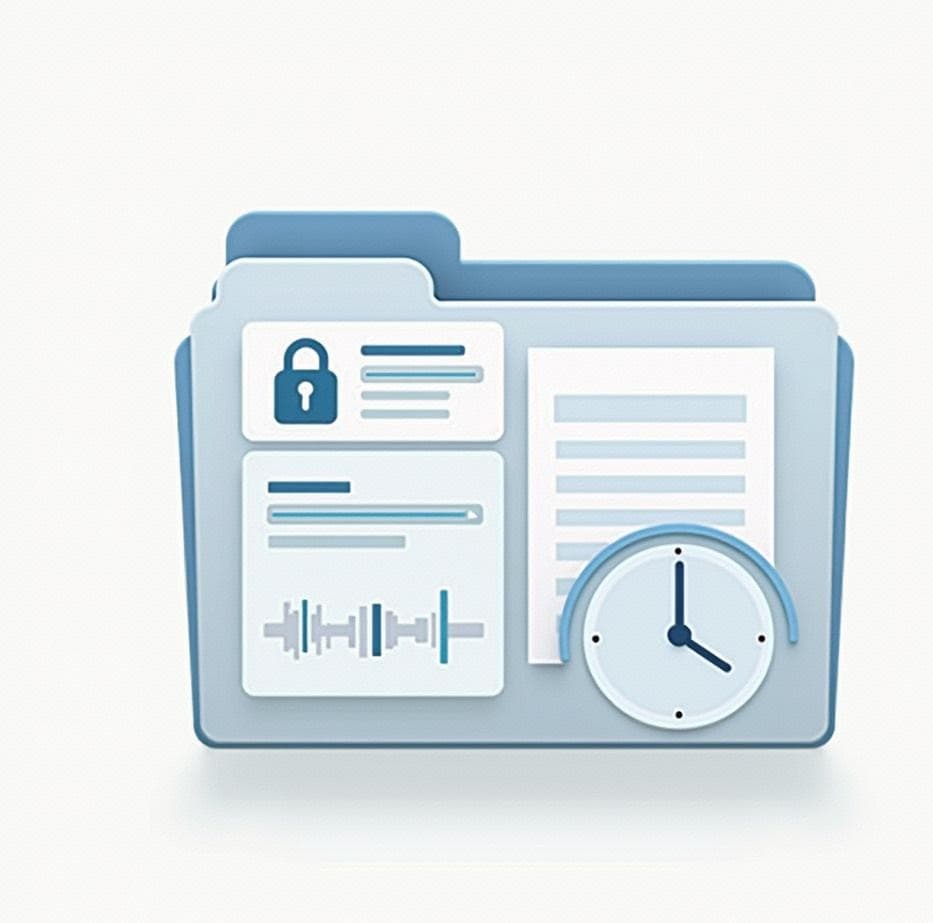
AI Agent Platforms for Small Businesses: Which One Fits Your Needs?
Finding the right AI agent platform for small businesses can save time, boost sales, and streamline operations. bika.ai makes this easy, letting small teams create AI agents through chat, automate repetitive tasks, and track results in one workspace. Whether it’s scheduling emails, managing leads, or generating reports, bika.ai combines no-code simplicity with advanced automation features.
For small business owners looking to scale without extra staff, it’s one of the best AI agent platforms, providing both efficiency and flexibility for daily operations and marketing workflows.
How Can AI Agents for Small Businesses Solve Common Challenges?
Running a small business means juggling multiple tasks every day. Repetitive work like follow-ups, inventory updates, and data entry consumes time. AI agents for small businesses can automate these workflows, freeing employees to focus on strategic work.

Platforms like bika.ai let users build AI teams through chat, assign tasks, and track progress efficiently.
Challenges AI agents can solve:
- Responding to customer inquiries 24/7
- Scheduling, reminders, and internal task routing
- Integrating multiple apps into one workflow
- Reducing human errors in repetitive operations
Limited resources often make scaling operations difficult. AI agents handle administrative tasks, customer communication, and reporting.
Tools like Lindy.ai and Zapier offer automation, but bika.ai combines AI agents, dashboards, and databases in one workspace. This integration reduces errors and ensures critical processes run smoothly.
How Can AI Agents Boost Efficiency, Marketing, and Decision-Making?
AI agents for small businesses do more than save time—they enhance overall performance. Marketing teams can automate content creation, social media posting, and campaign tracking. Platforms like bika.ai offer ai-powered seo agents to generate content, analyze keywords, and schedule posts automatically.
Benefits include:
- Operational efficiency: streamline repetitive tasks
- Marketing & SEO: content creation and posting automation
- Customer support: personalized responses anytime
- Data insights: identify trends and predict future needs
These benefits make it easier for small business owners to focus on strategic work. With automation handling routine tasks, teams can allocate resources more efficiently and respond faster to opportunities.

Operations and sales benefit too. bika.ai, as a full-featured ai agent platform, lets entrepreneurs delegate follow-ups, reporting, and outreach without manual work. Tidio and HubSpot provide AI chatbots for support, but bika.ai combines multi-agent workflows with analytics dashboards. Businesses can forecast inventory, monitor performance, and optimize daily operations efficiently.

Pro Tip: Set clear priorities for your AI agents to maximize ROI. Regularly review dashboards to fine-tune workflows.
Which AI Agent Platform Is Best Suited for Your Small Business?
Choosing the right ai agent platform depends on your team size, budget, and goals. Solo founders benefit most from bika.ai, which organizes AI agents, automation, dashboards, and databases in one interface.
Tasks, workflows, and AI team collaboration are all managed through chat, making it easy to run multiple projects. Other AI platforms for small businesses like Lindy.ai, Zapier, and CrewAI specialize in certain functions, such as workflow automation or developer-focused setups.
Key selection factors include usability, integrations, and scalability. bika.ai supports no-code setup and connects with 5,000+ apps, enabling automated campaigns, CRM management, and content posting without writing code. Lindy.ai offers CRM templates for sales and operations, while Zapier excels at connecting apps for automation.
Platform examples and practical use cases:
- bika.ai

Build AI teams that handle multi-step tasks automatically. For example, a solo founder can assign a new AI agent to manage email outreach, update client databases, and track campaign results in one workspace. Marketing content can be drafted, scheduled, and analyzed using AI-powered SEO workflows. Dashboards provide a real-time overview of performance and KPIs, all coordinated via chat.
- Lindy.ai

Provides all-in-one automation for operations, sales, and support. Useful for SMBs needing prebuilt CRM templates and workflow automation across teams.
- Zapier

Connects apps to automate multi-step workflows. Ideal for businesses with existing tools that need seamless data transfer and event-triggered actions.
CrewAI

Developer-friendly multi-agent collaboration. Best for technical teams building customized AI solutions, like multi-agent research or complex task orchestration.
💡Pro Tip: Picking the right AI agent platform ensures your AI agents save time, reduce errors, and scale your business efficiently. Test small workflows on your chosen platform first. Start with high-impact repetitive tasks to see immediate efficiency gains.
How to Select the Best AI Agent for Your Small Business
Using a single AI agent helps with specific tasks, but multiple agents amplify results. bika.ai enables the creation of agentic AI teams that communicate and coordinate autonomously.
Multi-agent setups allow specialization and efficiency. Sales, marketing, and support agents can operate simultaneously, interacting with each other and external tools.

Practical steps to select the best AI agent:
- Define core tasks: Identify repetitive, low-value tasks suitable for automation.
- Map workflow dependencies: Determine which tasks require sequential or parallel execution.
- Test agent capabilities: Deploy agents on trial tasks to see performance and accuracy.
- Check integrations: Ensure agents can connect with key apps like email, CRM, or payment systems.
- Monitor outcomes: Use dashboards to measure efficiency, errors, and completion rates.
When selecting the best AI agent, focus on usability and practical applications. Reddit discussions from r/smallbusiness show that entrepreneurs care about AI handling repetitive, low-strategy tasks. Examples include appointment scheduling, email follow-ups, and basic customer inquiries.
Next, consider integration and automation capabilities. Users often need agents that can work across multiple apps and tools without technical expertise. bika.ai’s ToolSDK.ai connects with 5,000+ external apps, letting agents perform actions automatically.
This supports marketing campaigns, CRM updates, and inventory tracking. Small business owners can therefore deploy AI agents without coding, saving setup time.
Finally, evaluate task tracking and reporting. Businesses need visibility into agent performance and workflow outcomes. bika.ai dashboards provide metrics for completed tasks, follow-ups, and campaign results. Other platforms may offer isolated analytics, but coordinated multi-agent tracking ensures accountability and optimization.
💡Pro Tip: Start with one high-impact task per agent team. Expand gradually to optimize workflow efficiency.
How Are AI Agents Applied in Different Industries Like Retail, Services, and Education?
AI agents for small businesses can transform daily workflows by handling repetitive or time-sensitive tasks. Probably small business may face the following scenario at their start:
- Retail, solo entrepreneurs use bika.ai to forecast sales, track customer behavior, and optimize promotions automatically.
- Service providers automate client follow-ups, feedback collection, and recurring scheduling with ai agents, freeing staff for higher-value tasks.
- Educational organizations deploy ai agent platforms to monitor student progress, generate personalized learning paths, and send targeted reminders efficiently.
Across industries, an ai agent platform can connect multiple processes, from marketing campaigns to operations, without extra staff. By leveraging ai-powered seo agents and other AI capabilities, small teams can scale their impact while keeping costs low. Real-world examples highlight versatility:
- Retailers: ai agents analyze purchase patterns and suggest bundles or discounts automatically.
- Restaurants & Cafes: ai agents predict peak hours, optimize staffing, and manage supply orders.
- E-commerce shops: ai-powered seo agents monitor cart abandonment and trigger personalized campaigns.
- Consulting firms: ai agent platforms prepare client status reports and track project deliverables.
- Education & Training: ai agents for small businesses flag students at risk, schedule mentoring, and automate learning assessments.
Small businesses gain actionable insights while reducing manual work. Coordinated ai agent platforms let one-person teams operate at the efficiency of larger organizations.
Using bika.ai, owners can visualize results in dashboards, adjust strategies without coding, and deploy AI agents quickly and cost-effectively.
What Are the Step-by-Step Best Practices to Implement AI Agents Successfully?
Implementing ai agents for small businesses starts with defining clear goals. Focus on repetitive, time-consuming tasks that ai agents can automate efficiently. Mapping these tasks to business priorities ensures the chosen ai agent platform supports growth. This allows teams to focus on strategy while ai agents for small businesses handle routine work.
Step-by-Step Best Practices List
- Define clear goals: Map tasks for automation and desired outcomes.
- Prioritize high-impact tasks: Focus on tasks that save time or reduce errors.
- Test agent performance: Deploy on small tasks before full-scale implementation.
- Ensure integrations: Connect agents with email, CRM, or marketing tools.
- Monitor results: Track task completion, errors, and productivity metrics.
- Iterate continuously: Adjust workflows and rules based on performance data.
Next, choose a suitable ai agent platform that integrates easily with existing tools. Test ai agents on small tasks first, such as social media updates or lead follow-ups. Trial runs help verify accuracy and measure effectiveness before scaling. Using ai agents for small businesses in this way prevents errors and ensures fast ROI.
After deployment, monitor performance using dashboards and reports. Ai agents provide insights into task completion, workflow efficiency, and errors. Regular updates improve results, helping ai agents for small businesses adapt to changing needs. This ensures consistent productivity gains while using the ai agent platform effectively.
Best practices include defining goals, prioritizing key tasks, testing ai agents, ensuring app integrations, and tracking outcomes. Start small and expand gradually to optimize efficiency and adoption of ai agents for small businesses.
⭕️Pro Tip: Start with high-impact tasks to see quick results. Gradually expand the responsibilities of AI agents on your AI agent platform.
Conclusion
AI agents for small businesses are transforming how entrepreneurs handle operations, marketing, and customer interactions. bika.ai offers a comprehensive ai agent platform that integrates multi-agent workflows, automated dashboards, and ai-powered seo agents, helping small teams scale efficiently without adding extra staff.
Emerging trends show ai agents becoming more autonomous, capable of proactive decision-making, and seamlessly integrating across multiple apps. By leveraging bika.ai, small business owners can stay ahead, automate repetitive tasks, and focus on strategic growth while deploying cost-effective, high-efficiency solutions.

Recommend Reading
Recommend AI Automation Templates

